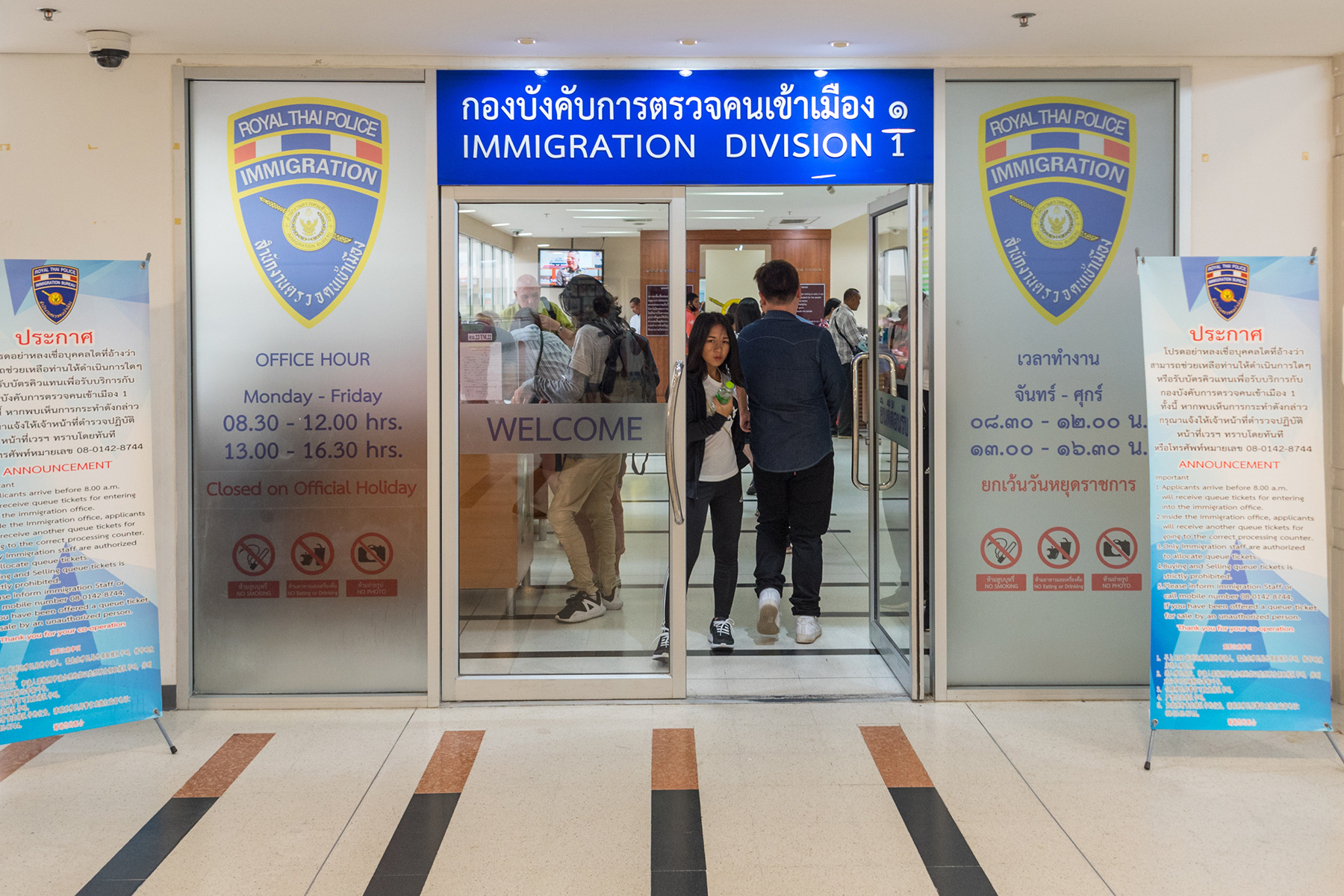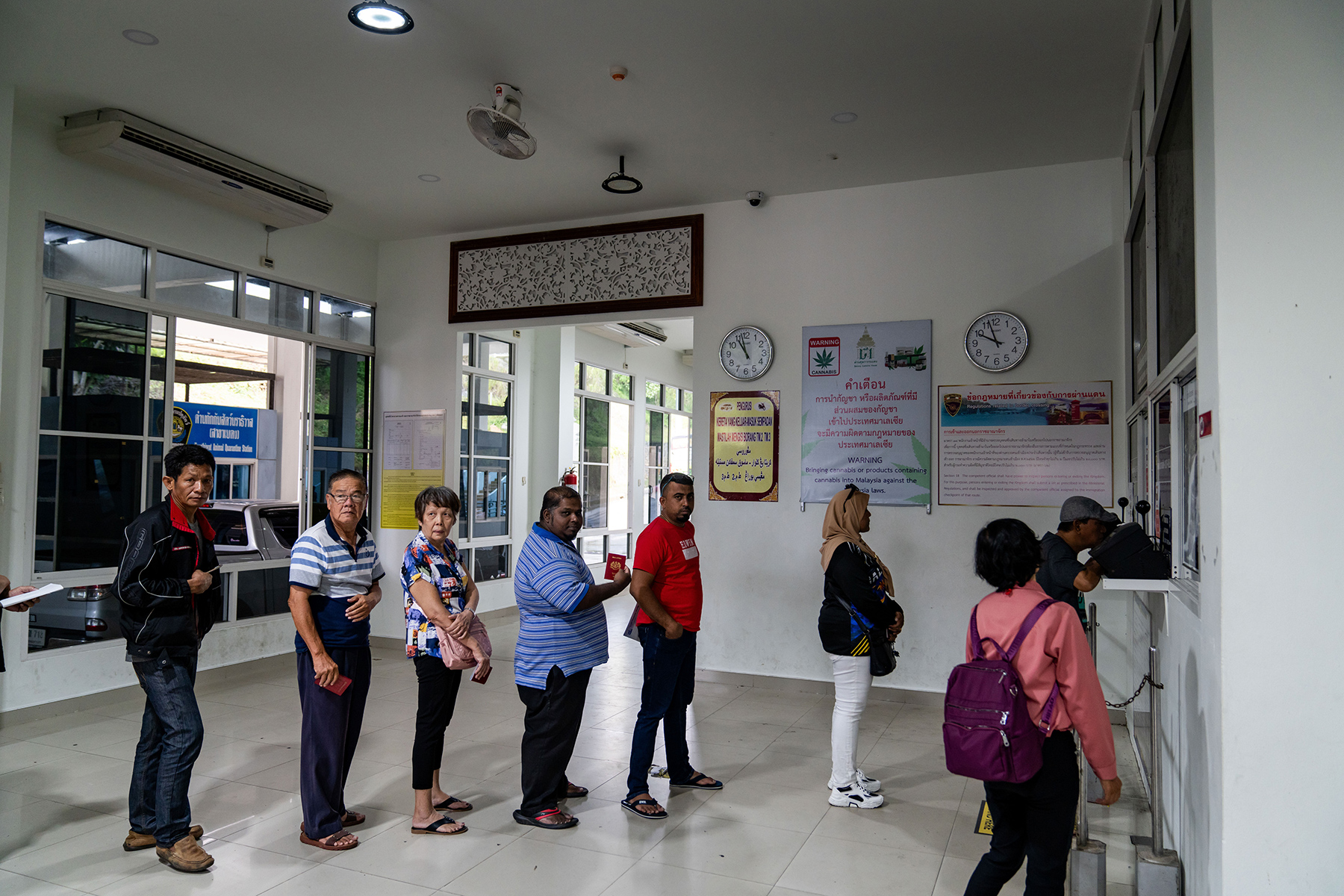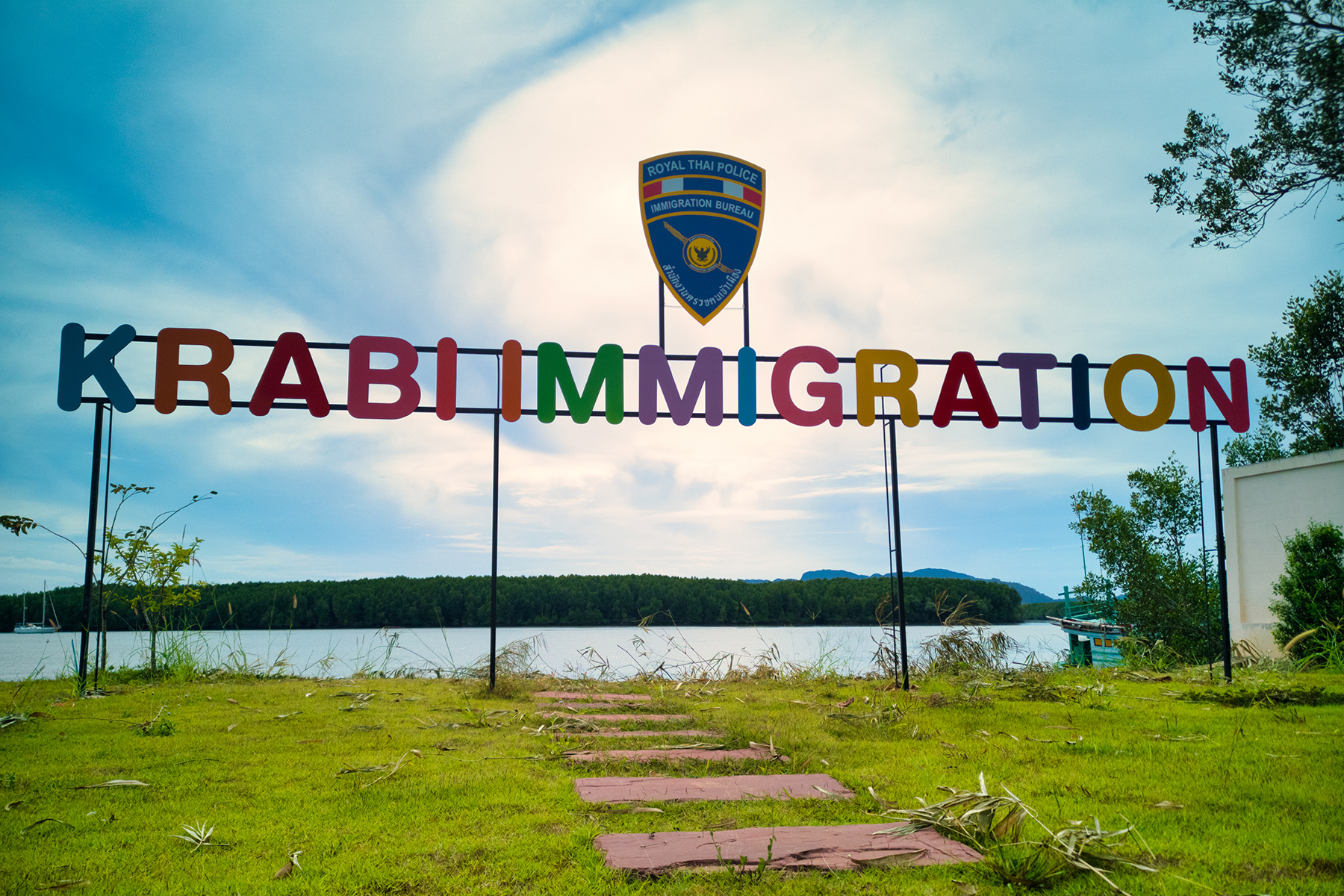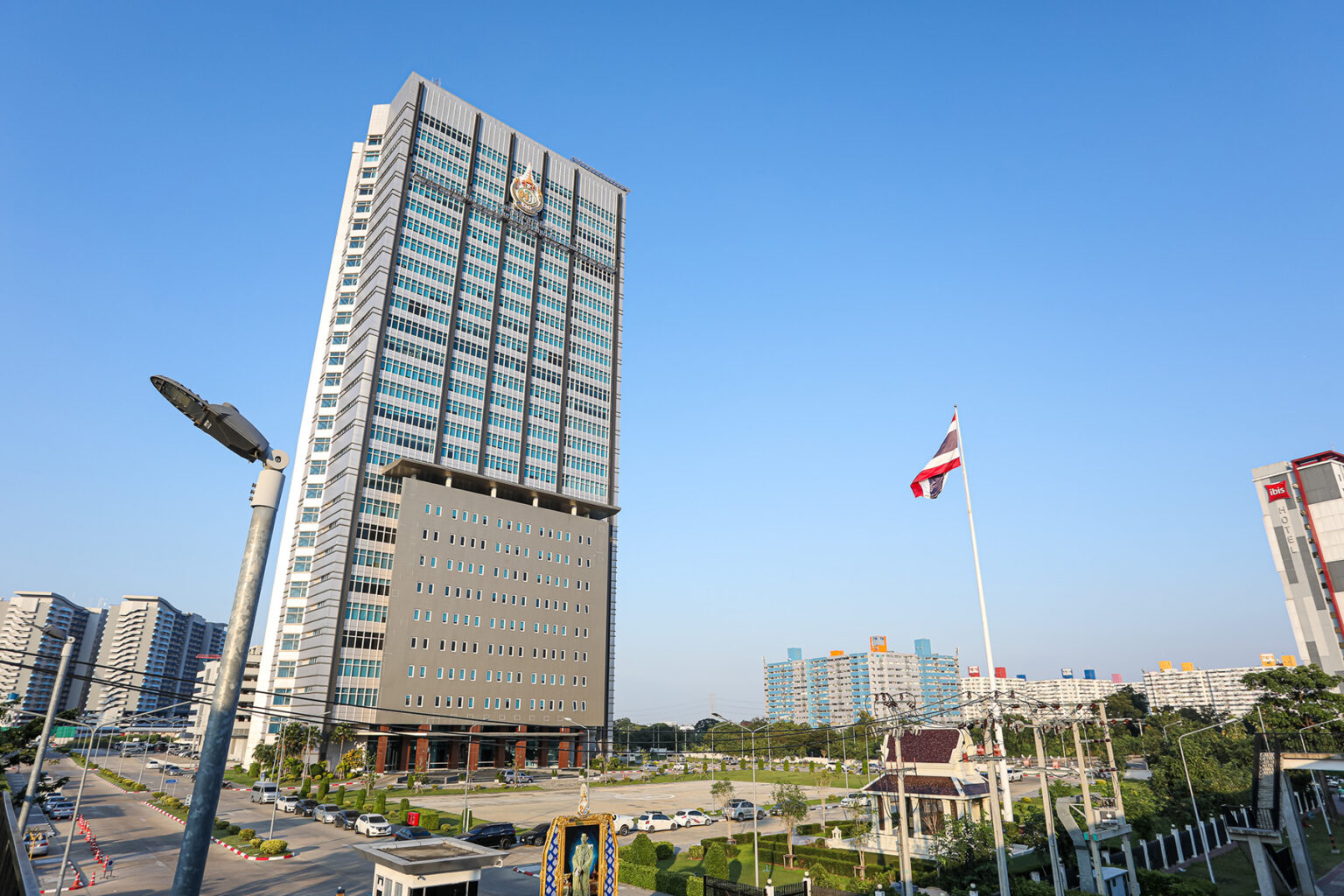If you’ve been living in Thailand for a few years, the idea of permanent residency might be tempting. Becoming a permanent resident will make some parts of your day-to-day life easier, and you’ll spend less time thinking about visas and work permits. While there aren’t as many benefits as being a Thai citizen, for many, it’s an important step on the path to citizenship.
Learn all about the how and why of Thai permanent residency, including:
- Permanent residency in Thailand
- Difference between Thai citizenship and permanent residency
- Requirements for permanent residency in Thailand
- How to apply for permanent residency in Thailand
- Permanent residency costs
- Renewing your permanent residency in Thailand
- Permanent residency in Thailand for family members
- Losing your permanent residency rights in Thailand
- What to do if your application for permanent residency is rejected
- Useful resources
Sirelo
It’s no secret that moving abroad can be stressful. Sirelo’s team of removal advisers is here to help. They provide five free quotes from international shipping companies so you can find the best options at the best prices. Take the stress out of your relocation to Thailand with Sirelo.
Permanent residency in Thailand
In Thailand, permanent residency (PR) is known as a resident’s visa. The Royal Thai Police Immigration Bureau (สำนักงานตรวจคนเข้าเมืองสำนักงานตำรวจแห่งชาติ) manages the process, handling all applications and deciding whether or not to approve them.
Applying to become a permanent resident is quite complicated and takes a long time. Therefore, relatively few people apply for it. There is even a quota of 100 resident visas per country per year. Plus, there are only two months per year in which you can submit your PR application (usually sometime between October and December).

If permanent residency isn’t an option for you, there are also two other long-term Thai residency visa options. Each one gives you some of the benefits of permanent residency, as well as a few other perks:
- Thailand Privilege (formerly the Elite Visa) – This membership scheme is expensive, ranging from ฿900,000 to ฿5 million. However, it is worth it for some people as it gives you a 5–20-year visa, allowing unlimited entries to the country during that time. It also has benefits like VIP fast-track entry at international airports and points you can spend on various health and leisure activities.
- Long-term Residents visa (LTR) – This new visa gives certain individuals a 10-year renewable visa with various tax and immigration privileges. It is open to various wealthy individuals and pensioners, highly skilled professionals, and certain remote workers.
Difference between Thai citizenship and permanent residency
For many people, permanent residency is a path to Thai citizenship, while for others, it is the end goal. The two have various key differences that make them suitable for different people.
Thai permanent residency
Some of the main benefits of permanent residency status in Thailand are:
- You keep your existing passport.
- You no longer need to renew your visa regularly or submit 90-day reports. However, when you leave the country, you must apply for a re-entry permit.
- It is easier to get a work permit, as your company no longer needs four Thai national employees per foreign employee. However, unless you are a US citizen, any business you own must still have a 51% Thai shareholder.
- You can get a blue house registration book, also known as a tabien baan (ทะเบียนบ้าน), a red ‘alien book’ (ใบสำคัญประจำตัวคนต่างด้าว). You can use these as IDs when carrying out many government transactions. This saves you from getting a fresh residence certificate for each of these transactions.
- You can purchase a condo with funds earned within Thailand. Non-permanent residents must prove the money has come from outside Thailand.
- If you and your spouse both have permanent residency, this is a path to Thai citizenship for your children.
- Your permanent residency in Thailand doesn’t expire, but the immigration department can revoke it under certain circumstances.
Thai citizenship
In addition to many of the benefits of permanent residency in Thailand, getting Thai citizenship also has these benefits:
- You will get a Thai passport and can enter the country through the same lines as all other Thai citizens.
- You no longer need to deal with Thai immigration and all the paperwork and bureaucracy involved.
- You no longer need a work permit, making it much easier to find a job.
- You can own land as well as condos.
- You can vote in Thai elections.
- You can fully own a Thai company without any requirements for registered capital.
- While it is very unlikely, the government can revoke your Thai citizenship if you pose a threat to national security or the general public.
Requirements for permanent residency in Thailand
The requirements for becoming a Thai permanent resident depend on a range of factors. You can qualify for permanent residency relating to one of the following categories:
- Employment
- Family
- Business
- Expertise
- Exceptional circumstances
Each category has different criteria for application. However, all applicants for permanent residency must have resided in Thailand for three consecutive years. You also need a clean criminal record and must pass a Thai language proficiency test. But don’t worry about being fluent in Thai – the interview is to a conversational level, and the testers have some leeway in whether they pass you or not.
Employment
Under the employment category, you must have been resident in Thailand for at least three years on a non-immigrant visa. This must be a single visa, which you extend each year, so three separate non-immigrant visas won’t count. You must have been earning at least ฿80,000 per month for at least the last two years and have filed tax returns for these years.
Family
Spouses, parents, and children of a Thai citizen or permanent resident can also apply for permanent residency. Children must be under 20 years old for this application.

If you’re applying as a spouse (for humanitarian reasons), you must have been married for at least two years if you have children and five years if you don’t. For the family category, you also need a monthly salary of at least ฿30,000 for at least the last two years. The supporting party must also provide income tax receipts. The fee for an application under this category is 50% lower (฿95,700) than for the business category application (฿191,400).
Business
If you are an executive officer of a company operating in a field that is of interest to the Thai economy, you can also apply for permanent residency. The company must have a registered capital of at least ฿10 million, and you must earn at least ฿50,000 per month there for two years before applying.
Investment
If you’re applying for permanent residency through investment, you have to invest at least ฿10 million in Thailand. It’s also important that you can prove that you brought these funds in from outside the country.
You can invest in a public company, the Thai stock market, a state-issued security, or a state-enterprise security. You need to provide proof of your investment annually for the first three years of your permanent residency.
Expertise
Those applying for permanent residency through expertise must be certified by an official government authority.
You will need at least a bachelor’s degree and have specialist skills in an area of need and benefit to Thailand. You also need to have been working in the role for at least three years before you can apply.
Exceptional circumstances
If you have performed an exceptional service to Thailand, you may be able to apply for permanent residency. A high-ranking government, military, or civil official will also have to certify your application.
How to apply for permanent residency in Thailand
The Thai residency application process requires a lot of paperwork, so leave yourself enough time to gather all the documents. As there is only a short window to apply, usually between October and December, you should prepare everything before this time.
You must submit your application in person at your local immigration office. On the submission date, you’ll get a 180-day visa extension to cover the time it takes to process your application.
When you apply for permanent residency, you are likely to need most, if not all, of these documents:
- Application form (TM.9)
- Your passport and a copy of all the relevant pages
- A clear criminal record certificate from your home country
- Your monthly income tax returns (ภ.ง.ด. 1, Por Ngor Dor. 1)
- Your work permit and a copy
- Both the original and a copy of your yellow house book (สมุดทะเบียนบ้านสำหรับคนต่างด้าว)
- Certified copies of any educational certificates
- Medical test certificate
- 12 passport photos
- Photos of you outside your place of work and residence and with your Thai family member(s)
- The application fee, in cash

If any of these documents are not in Thai, you will need a certified translation.
You might have to provide additional documents, depending on the category you are applying for. As the application process is so complicated, we recommend you work with an experienced Thai immigration lawyer. These professionals will make sure you have all the correct documents and help make the process as straightforward as possible.
After application
After you submit your application, you will get an appointment for an interview, in which immigration officers will test your Thai language skills. It’s also a good idea to show your understanding of Thai culture and etiquette.
After your interview, the waiting begins. You will generally have to wait several months to find out if immigration has approved your application.
After approval
Once the immigration department approves your Thai permanent residency, you must follow these steps:
- Make an appointment to collect your blue residence book also referred to as a residence permit, and pay the full fee.
- Go to your local police station to apply for your red ‘alien book,’ also referred to as a permanent residence book or residence permit, which works like a Thai ID card (remember to do this within seven days of getting your blue book).
- You then have 30 days to take your blue book and register your place of residence at your local government office.
The entire process, from gathering your documents to getting your red book, usually takes a full year to complete.
Permanent residency costs
When applying for permanent residency, you must pay various fees. These are:
- A non-refundable application fee of ฿7,600
- If accepted, a residence permit fee of ฿191,400. Discounts are available for children under 20 and spouses of Thai citizens and permanent residents. In these cases, the residence permit fee is ฿95,700.

Writer and local expert
Naomi Nunn
Insider tip
In general, immigration offices in Thailand only accept cash (though some now accept other payment methods, such as QR codes). So, it’s worth checking with your local office which payment methods they accept when making your appointment to collect your residence permit.
Also, you should always receive an official receipt with a Garuda emblem.
Renewing your permanent residency in Thailand
Although Thai permanent residency does not expire, you do need to renew your red book every year at your local police station. You must also obtain a re-entry permit whenever you leave the country. You can get this from your local immigration office.
Permanent residency in Thailand for family members
When you apply for Thai permanent residency, your application does not automatically cover your family members. However, once you are a permanent resident, you can apply for dependent Non-O visas for direct family members.

After becoming a permanent resident, your family members can apply for their permanent residency, too. This applies to your legal spouse and any children under 20.
Losing your permanent residency rights in Thailand
Once you have permanent residency in Thailand, it is, in theory, valid for life. However, there are a couple of ways you can lose it:
- If you leave the country without getting a re-entry permit.
- If you stay outside the country for over a year without solid mitigating reasons (e.g., a pandemic).
In both these cases, you can re-apply for permanent residency.
What to do if your application for permanent residency is rejected
Unfortunately, if immigration rejects your application for permanent residency, you cannot appeal, and they are unlikely to tell you the reason why.
In fact, according to official Thai immigration regulations, the Immigration Commitee or Minister of Interior can reject candidates even when they meet all of the stipulated criteria. In these cases, they are not obliged to reveal the reason.
However, you can always re-apply the following year.
Useful resources
- Royal Thai Police Immigration Bureau – official guidance and application forms.
- Siam Legal – overview of the permanent residency process.







